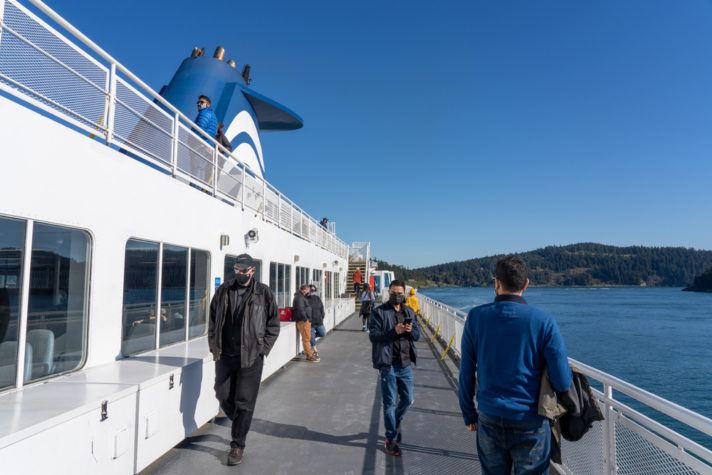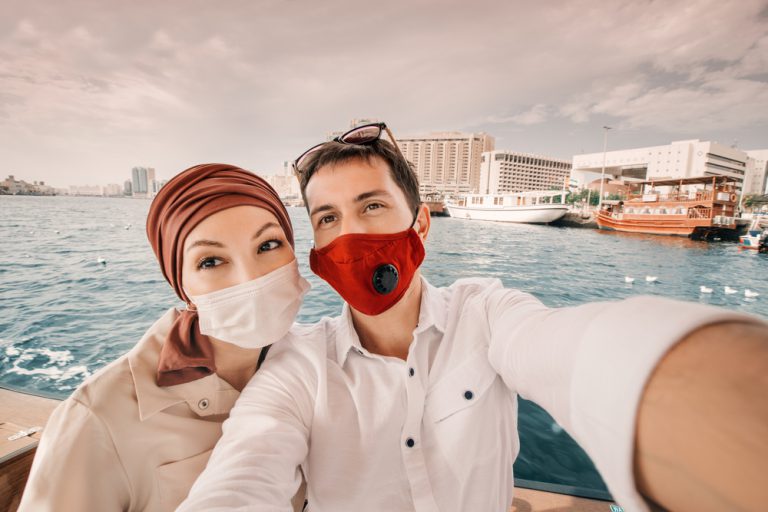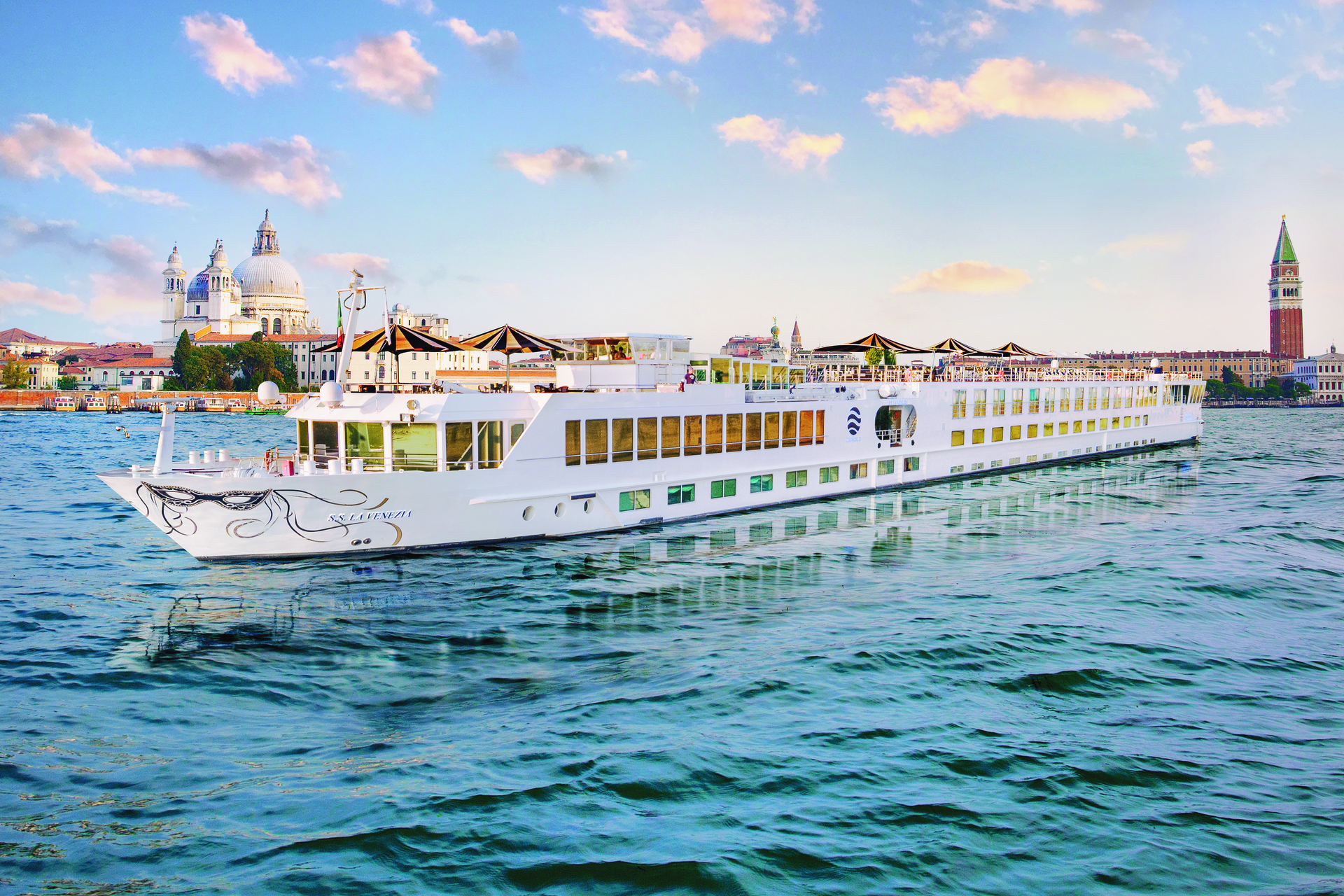Taghrid Istivan is an Associate Professor at RMIT School of Science and holds a PHD in Biotechnology. Ms Istivan also recently booked a Royal Caribbean South Pacific cruise with her family next year.
She believes cruising is safe compared to alternatives, though she concedes it does hold risks that should not be ignored.
“I feel it is safe in general. Maybe for me, it is even safer than being on an airplane. Because it’s a larger space and maybe the COVID risk would be lower on a ship than on an airplane where they are all sitting next to each other,” she told Cruise Passenger this week.
“It can happen in a hotel room, in a restaurant, you can catch the virus anywhere. I don’t see there is more risk [when cruising] to fully-vaccinated healthy individuals. My perspective is, on a cruise ship it’s better than going overseas to a hotel or restaurant where you don’t know what the standards are and if it has been fully cleaned and if everyone around you is immunised.”
“If cruise follows the rules being used overseas of full vaccination, testing before and having all the needed assistance for someone if they do get infected, then it is safe.”
However, Ms Istivan did make an important point on high risk passengers. “Yes if every passenger is vaccinated you should have a lower risk of contracting COVID – but we need to remember that sometimes we will have people who are immuno-compromised or people with older age, who usually tend to travel on cruises because of the nature of the trip. These people can be at risk.
“While vaccinated people may not show symptoms they can still potentially contract the disease and if we have immuno-compromised people in the same, enclosed environment, it can be a risk to them.”
The argument about cruise safety has been raised by the industry itself. At a SeaTrade cruise conference in Miami last month, Richard Fain, CEO of Royal Caribbean said: “Unlike almost any place you can think of whether it’s restaurants, hotels, entertainment venues…we control the environment.”
Emre Sayin, CEO of Global Ports Holiday even went as far to say: “There will be no safer way of travelling once we truly start cruising.”
Tom McAlpin the CEO of Virgin Voyages, had similar views, stating cruises are “safer than a hotel, safer than the grocery store.”
Given the work that has been done on health protocols, vaccination mandates and onboard hospital facilities, it sounds logical. Cruise Passenger spoke to health experts unconnected with the cruise industry to test the theory. The results were very positive.
 Professor Catherine Bennett is the chair of epidemiology at Deakin University and sees both sides of the cruise argument.
Professor Catherine Bennett is the chair of epidemiology at Deakin University and sees both sides of the cruise argument.
“It’s one of those areas where I think cruise ships are going to be much safer than they ever were. We’re just improving our understanding of communicable diseases so a lot of the interventions put in place are actually going to be important not just for COVID but for other disease outbreaks and viral diseases.
“Down the track it’s how you then keep up to date with all the things happening with variants and all the other things that are circulating, particularly with ships that are going port to port and by design, are picking up people from all around the world.”
On whether a cruise ship is safer than other forms of entertainment and travel, Ms Bennett compares it to a shopping centre and says the duration of exposure matters. So while a cruise ships is safer over the short term, over time and exposure there could be risks. But she praised the work done in risk management by cruise lines.
“I think that’s why this sort of high standard is there, with risk management, because the duration of exposure matters as well. But if you’re really reducing it, which they are by design in the way they’re responding to this with their COVID safe plans, that means their risk in the short and long term is more than manageable.”
Ms Bennett makes the point that cruises are a closed community and the nature of COVID and vaccinations creates a risk of the disease silently spreading through the ship. But the good news is it’s easier to trace.
“The biggest challenge for us as epidemiologists, the biggest problem with any condition, is when you have asymptomatic spread. So there are some things that are more of a challenge in having a captured community. While these ships are large and people can be in different parts of them on different days, it is still a closed community.
“But sometimes that’s helpful too. If people know exactly where passengers are, you can do contact tracing and make sure you can manage it if you have the small outbreaks on board. So you keep them small.”
As far as cruise ships being safe, Ms Bennett overall believes cruise ships are well suited for a post-COVID world. Staying in a safe, enclosed environment with safety measures certainly helps.
“I do think those things actually makes the cruise argument a valid one. As it always has been, it applies equally well to COVID.”









